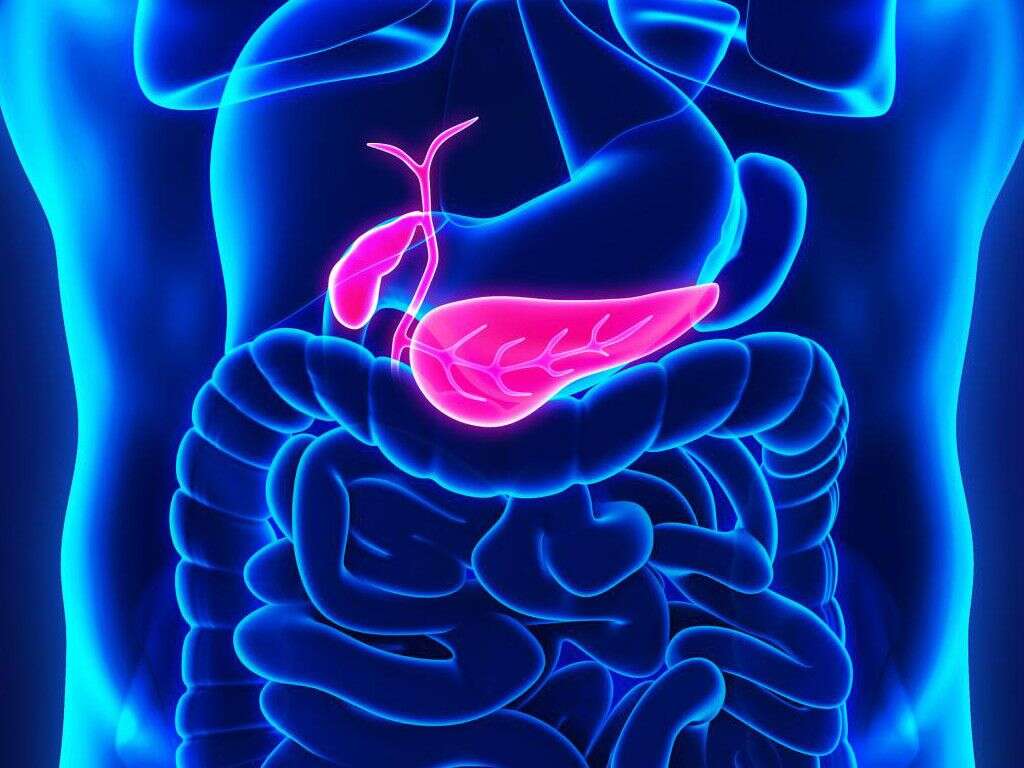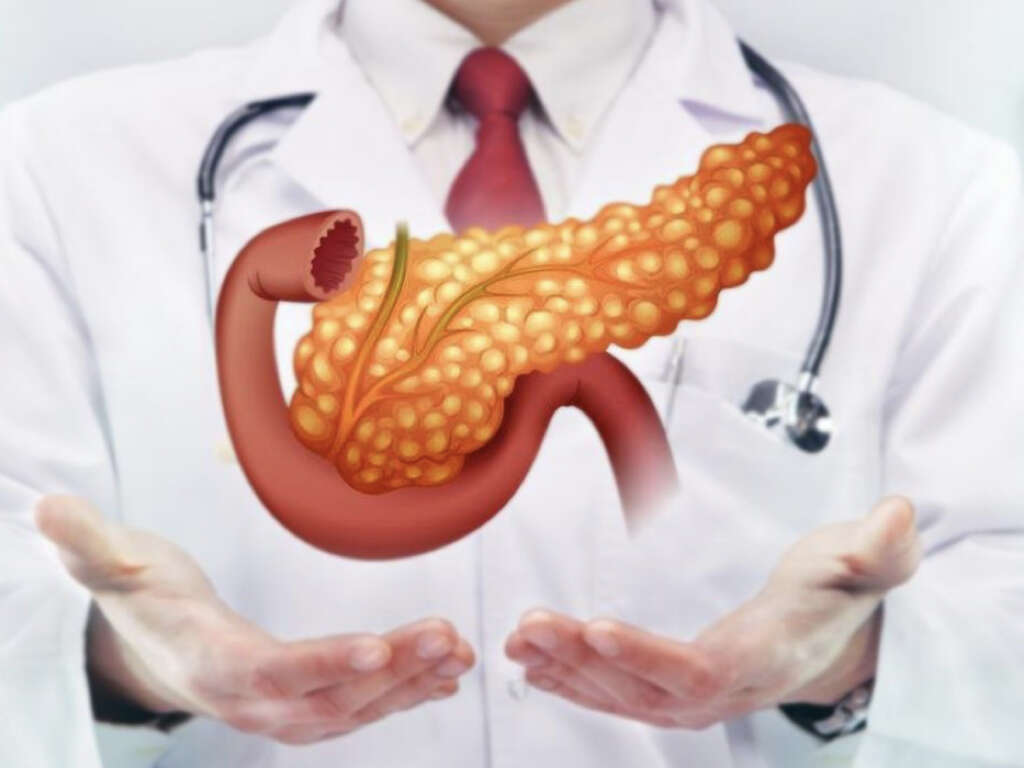10 Symptoms of Pancreatic Cancer
The pancreas is one of the endocrine glands in the body that is involved in the digestive system. It can be found in the abdomen behind the stomach. It has important functions as it produces hormones such as insulin, glucagon, pancreatic polypeptide, and somatostatin. Pancreatic juice is also secreted to neutralize acidity of partly digested food that is moving in from the stomach. Pancreatic cancer occurs when pancreatic cells multiply forming a mass. These cells may invade other parts of the body (either surrounding areas or through blood). The most common type of pancreatic cancer is the pancreatic adenocarcinoma which occurs in 85% of cases.
The risk factors of pancreatic cancer include increased age, male gender, smoking, obesity, family history, chronic pancreatitis, diabetes, food such as processed meat, and alcohol. The symptoms do not usually occur in the early stages of pancreatic cancer. Diagnosis can be confirmed through medical imaging such as computed tomography (CT) scan, fine needle aspiration biopsy, and liver function tests. Treatment includes surgery, radiotherapy, chemotherapy and in advanced cases, palliative care.

Symptom #1: Pain
In pancreatic cancer, there can be pain in the upper abdomen that may radiate to the back. The location can worsen at night and gradually increase to become much more severe and persistent. Many patients find that the pain can be slightly relieved by leaning forwards.
Pancreatic cancer usually has very few symptoms in early stages and can be incidentally found in emergency department visits for abdominal pain. In 67% of patients with pancreatic cancer, abdominal pain is the main symptom with another 46% accompanied by jaundice.

Symptom #2: Nausea and Vomiting
Up to 40% of pancreatic cancer patients experience nausea and vomiting. It can occur due to reasons such as chemotherapy, radiotherapy, or obstruction of the bowel due to tumor growth. The reason for the vomiting should be sought out so the underlying cause can be treated to improve the patient’s quality of life.
Antiemetic (prevent vomiting) medications can also be prescribed. Drugs such as Granisetron, Ondansetron, and Metoclopramide are effective. Corticosteroids can also be used to prevent vomiting.

Symptom #3: Constipation
In pancreatic cancer patients, opioid therapy may cause constipation and prevention should be started at the onset of opioid prescription. Other causes of constipation in pancreatic cancer patients include factors such as having a low fiber diet, decreased fluid intake, decreased physical activity and side effects from prolonged bed rest. It can also be caused by metabolic abnormalities and bowel obstruction.
The treatment of constipation depends on the underlying cause but patients should be encouraged to increase fluid intake, physical activity, and prescribed laxatives (such as lactulose, colace, Senokot, or Dulcolax) or enemas if necessary.

Symptom #4: Indigestion and Changes in Bowel Habits
Besides constipation, other changes in the digestive tract that can occur are indigestion and diarrhea. It can occur due to the overuse of laxatives (as part of therapy to prevent constipation due to opioid therapy), malabsorption, stress, anxiety, infection, side effects of medication or therapy, effect of the cancer, surgery, bowel obstruction, and pancreatic enzyme deficiency.
The treatment and management would depend on the underlying cause of the indigestion and bowel habit changes. Regulation of food and fluid are most likely to be required. Antidiarrheal medication can also be prescribed.

Symptom #5: Weight Loss
Patients with pancreatic cancer often experience weight loss as the pancreas is involved in the digestion of food, especially fat. When there is cancer in the pancreas, it no longer functions normally or as effectively, causing the body to no longer be able to digest food properly or absorb nutrients leading to significant weight loss.
There are also many patients who report early satiety (feeling full faster with small amounts of food) which also causes them to eat less. Weight loss also occurs due to significant muscle atrophy. A nutritionist is required to help maintain the amount of adequate calories and balance of protein, carbohydrates, and fat.

Symptom #6: Loss of Appetite
Appetite loss is commonly seen among patients with cancer. In pancreatic cancer patients, they often experience early satiety which means that they feel full even after consumption of very little food. The growth of the tumor in size or abdominal swelling (ascites) may also increase pressure in the abdomen which prevents the stomach from expanding. It can also occur as a side effect from cancer treatment.
This causes the patient to eat less. Appetite stimulants such as megestrol, corticosteroids, and cannabinoids can be effective in helping these patients.

Symptom #7: Jaundice
Since pancreatic tumors can occur on the head of the pancreas and adjacent areas, the area where the bile duct merges with the pancreatic duct is affected. This causes the obstruction of the normal flow of the bile fluid into the small bowel. This causes the back flow of bile and also jaundice.
Jaundice is a medical term used to describe the yellowish discoloration of the skin accompanied by other symptoms such as appetite loss and unrelenting pruritus (itching) of the skin. Jaundice occurs in about 50% of patients with pancreatic cancer. It occurs when there is a build up of bilirubin (a by-product of red blood cells). Treatment includes a bypass procedure using surgery or stents placed endoscopically.

Symptom #8: Ascites
Ascites is a medical term that describes the abnormal fluid buildup in the abdomen. Symptoms of ascites are increasing abdominal size, increase in weight (due to fluid build up in the abdominal cavity), abdominal discomfort, and breathlessness. The cause of ascites may vary for each individual but is mostly attributed to lymphatic or peritoneal metastases.
Management includes diuretic medication or abdominal tap where a needle is inserted into the abdomen to draw out excess fluid. With the advancement of pancreatic cancer, more abdominal taps will be required.

Symptom #9: Fatigue
An early symptom of pancreatic cancer is fatigue. It is seen in a majority of patients and can be described as a loss of energy levels that may potentially affect the mental process. Fatigue occurs due to a variety of factors such as the cancer, sleeplessness (due to pain or other reasons), anemia, side effect of chemotherapy, anxiety, depression, side effect of medication, infection, electrolyte imbalance, or dehydration.
Treatment involves elimination of medical or psychological causes, adjustment of medications, and adequate rest. While patients are encouraged to remain physically active, they should not overly exert themselves.

Symptom #10: Depression
A diagnosis of any cancer can have a significant impact on patients and their family members. This can lead to depression, fear and anxiety as they realize that their life may be shortened. Changes in how they look can also affect their confidence and self-esteem contributing to depression. It can also be attributed to emotional distress as patients experience symptoms such as pain, tiredness, nausea, and not being able to continue their normal daily routines.
Fear of pain, suffering, and death can also lead to depression. Patients require social support to have a better quality of life. Going to a support group and having family and friends who are encouraging are also important.










